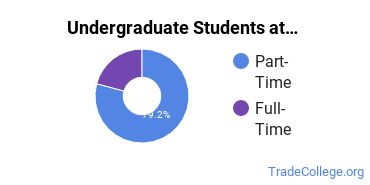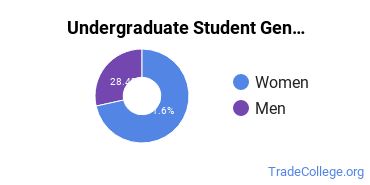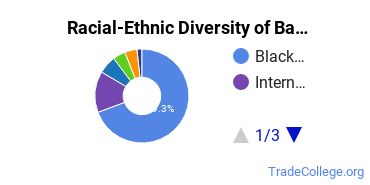Find Trade Colleges
Baltimore City Community College Trade Programs
Located in Baltimore, Maryland, Baltimore City Community College is a public institution. The location of the school is great for students who enjoy the amenities of city life.
Featured schools near , edit
Where Is Baltimore City Community College?

Contact details for Baltimore City Community College are given below.
| Contact Details | |
|---|---|
| Address: | 2901 Liberty Heights Avenue, Baltimore, MD 21215-7893 |
| Phone: | 410-462-8300 |
| Website: | www.bccc.edu |
Can I Afford Baltimore City Community College?
| In State | Out of State | |
|---|---|---|
| Tuition | $2,640 | $6,720 |
| Fees | $674 | $674 |
| Books and Supplies | $1,460 | $1,460 |
Baltimore City Community College Undergraduate Student Diversity

Gender Diversity
Of the 1,180 full-time undergraduates at Baltimore City Community College, 30% are male and 70% are female.

Racial-Ethnic Diversity
The racial-ethnic breakdown of Baltimore City Community College students is as follows.

| Race/Ethnicity | Number of Grads |
|---|---|
| Asian | 28 |
| Black or African American | 841 |
| Hispanic or Latino | 61 |
| White | 41 |
| International Students | 166 |
| Other Races/Ethnicities | 43 |
Over 57 countries are represented at Baltimore City Community College. The most popular countries sending students to the school are Nigeria, Nepal, and Mali.
Baltimore City Community College Trade School Concentrations
The table below shows the number of awards for each concentration.
| Major | Basic Certificate | Associate’s | Undergraduate Certificate | TOTAL |
|---|---|---|---|---|
| Substance Abuse/Addiction Counseling | 21 | 26 | 0 | 47 |
| Licensed Practical/Vocational Nurse Training | 0 | 0 | 12 | 12 |
| General Drafting & Design Technology | 9 | 2 | 0 | 11 |
| Health Information/Medical Records Technology/Technician | 0 | 5 | 5 | 10 |
| Physical Therapy Assistant | 0 | 7 | 0 | 7 |
| Surgical Technology | 0 | 7 | 0 | 7 |
| Respiratory Care Therapy | 0 | 4 | 0 | 4 |
| Robotics Technology | 1 | 2 | 0 | 3 |
| Dental Hygiene/Hygienist | 0 | 2 | 0 | 2 |
| CAD/CADD Drafting &/or Design Technology | 0 | 0 | 0 | 0 |
| Electrical, Electronic & Communications Engineering Technology | 0 | 0 | 0 | 0 |
| Emergency Medical Technology/Technician (EMT Paramedic) | 0 | 0 | 0 | 0 |
| Community Health Services/Liaison/Counseling | 0 | 0 | 0 | 0 |
| Psychiatric/Mental Health Services Technician | 0 | 0 | 0 | 0 |
| TOTAL | 31 | 55 | 17 | 103 |
References
*The racial-ethnic minorities count is calculated by taking the total number of students and subtracting white students, international students, and students whose race/ethnicity was unknown. This number is then divided by the total number of students at the school to obtain the racial-ethnic minorities percentage.
More about our data sources and methodologies.
